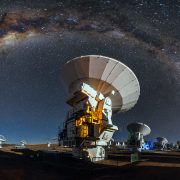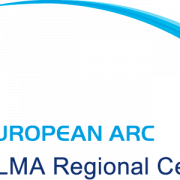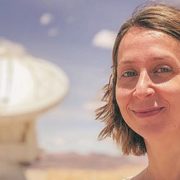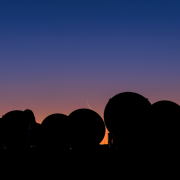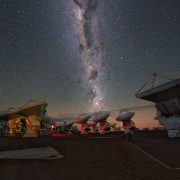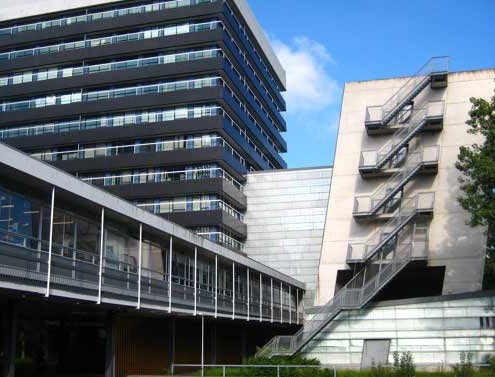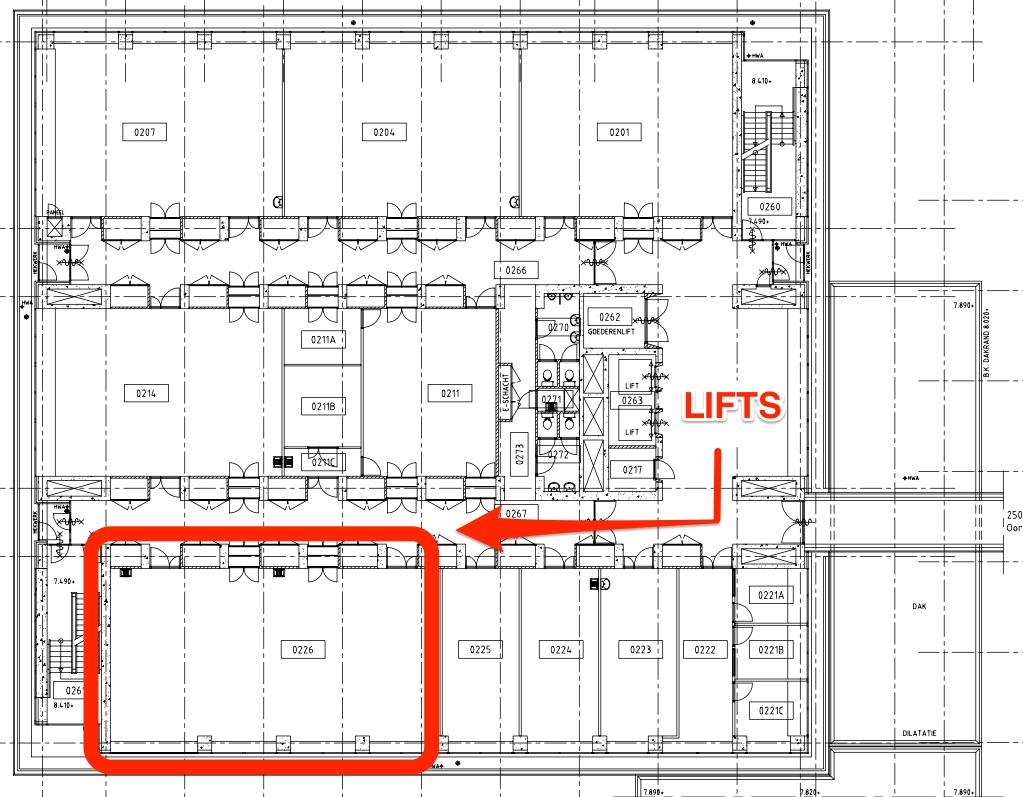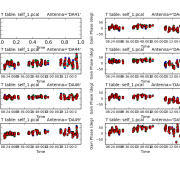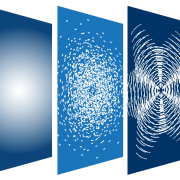4th Netherlands ALMA Science Day: January 25, 2021
Allegro announces the 4th Netherlands ALMA Science Day, which will be held (online) on Monday, January 25, 2021. At this meeting, we will hear presentations of the latest scientific results obtained with ALMA by the Netherlands astronomical community. Special guest speakers include Rychard Bouwens (Leiden Observatory, on the REBELS Large Program), and Leen Decin (Leuven, on the Atomium Large Program – to be confirmed). We will also hear the latest updates on the status of ALMA and its return to science operations, and allow time to discuss user experiences and other ALMA related topics.
Following the Science Day, on Tuesday, January 26, 2021, introductory CASA training will be offered, again online (click here for more information). Throughout the remainder of that same week, Allegro staff will be available to (remotely) work with you on exploring the capabilities of CASA on the Allegro computing system.
Important dates:
– January 11, 2021: Deadline for registering to present a talk and registering to attend the CASA training.
– January 21, 2021: Deadline for registering to attend the Science Day talks.
- Program
- Contributed Talk Abstracts
- Participants
- Connection details will be sent to registered participants
| Program | January 25, 2021 | |
|---|---|---|
| 12:30-12:35 | Zoom connection opens | |
| 12:35-12:45 | Welcome (Violette Impellizzeri) | |
| 12:45-13:15 | Rychard Bouwens (Invited Talk) |
Probing the Most Massive ISM Reservoirs in the Early Universe with the REBELS ALMA Large Program |
| 13:15-13:30 | Alice S. Booth | An inherited complex organic reservoir in a warm planet-hosting disk? First detection of methanol in a Herbig Ae/Be disk |
| 13:30-13:45 | Matus Rybak | Full of Orions? Dissecting the extreme star-formation in the early Universe with ALMA |
| 13:45-14:00 | Pooneh Nazari | Complex organic molecules in low-mass protostars |
| 14:00-14:20 | Liz Humphreys | Status of ALMA operations |
| 14:20-14:35 | Gergö Popping | ALMA Cycle 8 2021 |
| 14:35-14:55 | Discussion | |
| 14:55-15:05 | Break | |
| 15:05-15:20 | Huib Jan van Langevelde | Status of The Event Horizon Telescope |
| 15:20-15:35 | Karina Caputi | An ALMA galaxy signposting a MUSE galaxy group at z=4.3 behind El Gordo |
| 15:35-15:50 | Ardjan Sturm | Tracing outer disk carbon depletion using [CI] |
| 15:50-16:05 | Raffaella Morganti | Taking snapshots of the jet-ISM interplay with ALMA: the case of PKS 0023–26 |
| 16:05-16:20 | Martijn van Gelder | Modeling SO and SO2 in accretion shocks |
| 16:20-16:30 | Break | |
| 16:30-17:00 | Leen Decin (Invited Talk) |
Stellar and planetary companions shape the winds of evolved stars |
| 17:00-17:15 | Niels Ligterink | Serpens SMM1-a: A primordial soup in space |
| 17:15-17:30 | Ko-Yun (Monica) Huang | Characterizing the shock properties in NGC1068 |
| 17:30-17:45 | Tomoko Suzuki | Dust, gas, and metal content in star-forming galaxies at z~3.3 |
| Closing remarks | ||
| Michiel Hogerheijde | Leiden Observatory |
| Violette Impellizzeri | Leiden Observatory |
| Leen Decin | KU Leuven |
| Rychard Bouwens | Leiden Observatory |
| Aida Ahmadi | Leiden Observatory |
| Alex Hygate | Leiden Observatory |
| Andrés Pérez-Sánchez | Leiden Observatory |
| Ashley Bemis | Leiden Observatory |
| Katharina Immer | Leiden Observatory |
| Elizabeth Humphreys | ESO/JAO Chile |
| Gergö Popping | European Southern Observatory |
| Huib Jan van Langevelde | JIVE & Leiden Observatory |
| Benoît Tabone | Leiden Observatory |
| Yipeng Lyu | Leiden Observatory |
| Simon Gazagnes | Kapteyn Astronomical Institute |
| Giovanna Pugliese | Anton Pannekoek Institute for Astronomy – UvA |
| Pratik Dabhade | Leiden Observatory |
| Felix Semler | University of Groningen |
| Simin Tong | Leiden Observatory |
| Fernanda Roman de Oliveira | University of Groningen |
| Olga Bayandina | Joint Institute for VLBI ERIC |
| Margot Leemker | Leiden Observatory |
| Ramlal Unnikrishnan | Chalmers University of Technology |
| Dazhi Zhou | Leiden Observatory |
| Jeroen Terwisscha van Scheltinga | Leiden Observatory |
| Vincent Icke | Leiden Observatory |
| Joris Kersten | Radboud University |
| Joshua Joseph Butterworth | Leiden Observatory |
| Alice S. Booth | Leiden Observatory |
| Ko-Yun (Monica) Huang | Leiden Observatory |
| Niels Ligterink | Space Research & Planetary Sciences department, University of Bern |
| Saskia Matheussen | NWO |
| Matus Rybak | Leiden Observatory |
| Jozsef Varga | Leiden Observatory |
| Pooneh Nazari | Leiden Observatory |
| Ardjan Sturm | Leiden Observatory |
| Helga Denes | ASTRON |
| Martijn van Gelder | Leiden Observatory |
| Cristina Garcia | Leiden Observatory |
| Leindert Boogaard | Leiden Observatory |
| Louise Lamblin | Leiden Observatory |
| Núria Casasayas Barris | Leiden Observatory |
| Alvaro Hacar | University of Vienna, Austria |
| Areli Castrejon Aviles | Kapteyn Astronomical Institute |
| Vanesa Ramírez | Leiden Observatory |
| Teymoor Saifollahi | Kapteyn Astronomical Institute |
| Daniele Aragão Ronso da Costa Lima | Kapteyn Astronomical Institute |
| Bayron Portilla Revelo | Kapteyn Astronomical Institute |
| Jakob van den Eijnden | University of Oxford |
| Jurjen de Jong | Leiden Observatory |
| Sarah Leslie | Leiden Observatory |
| Karina Caputi | Kapteyn Astronomical Institute |
| Tom Oosterloo | ASTRON & Kapteyn Astronomical Institute |
| Tomoko Suzuki | Kapteyn Astronomical Institute |
| Raffaella Morganti | ASTRON & Kapteyn Astronomical Institute |
| Lingyu Wang | SRON |
| Kirsty May Butler | Leiden Observatory |
| Juliëtte Hilhorst | Leiden Observatory |
| Pavel E. Mancera Piña | ASTRON & Kapteyn Astronomical Institute |
| Theodoros Topkaras | Leiden Observatory |
| Per-Gunnar Valegard | Anton Pannekoek Institute for Astronomy – UvA |
| Lucas Stapper | Leiden Observatory |
| Ivana van Leeuwen | Leiden Observatory |
| John McKean | ASTRON & Kapteyn Astronomical Institute |
| Nanna Kerlauge | ASTRON & Kapteyn Astronomical Institute |
| Marta Frias Castillo | Leiden Observatory |
| Di Wen | Kapteyn Astronomical Institute |
| Teresa Paneque-Carreno | ESO & Leiden Observatory |
| Sander Schouws | Leiden Observatory |
| Iris de Ruiter | Anton Pannekoek Institute – UvA |
| Anna de Graaff | Leiden Observatory |
| Jan Brand | INAF-IRA, Italian node EU ARC |
| Ewine van Dishoeck | Leiden Observatory |
| Marijn Franx | Leiden Observatory |
| Martin Zwaan | European Southern Observatory |
| Belen Alcalde Pampliega | European Southern Observatory |
| Andres Felipe Ramos Padilla | RUG / SRON |
| Serena Viti | Leiden Observatory |

